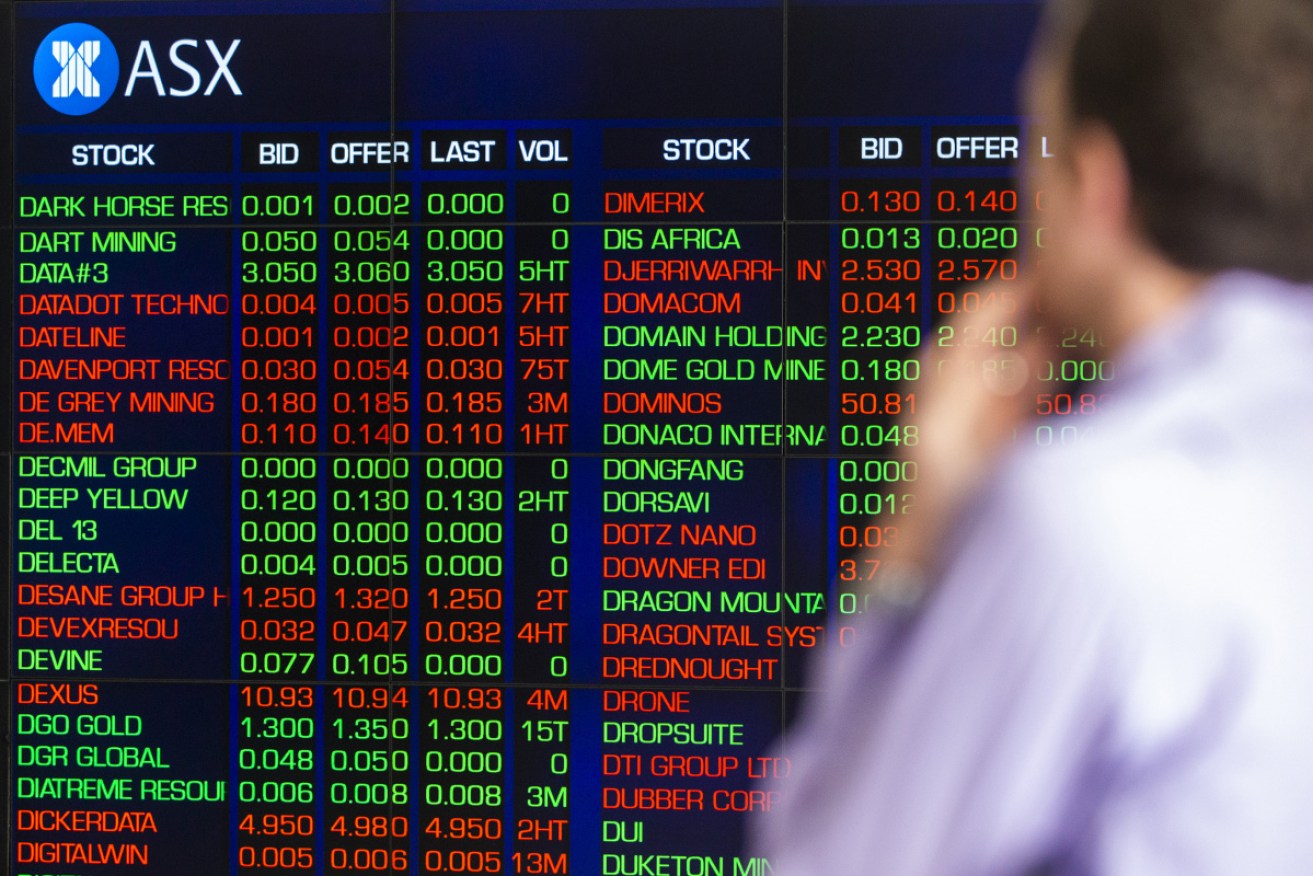Australian sharemarket rebounds after worst plunge since 1987

The ASX recorded a record daily fall of 9.7 per cent on Monday. Photo: Getty
There was a strong chance that Australian shares would tank even further on Tuesday.
Instead, the local share market unexpectedly surged, attempting to rebound from yesterday’s panic sell-off, which was also its worst day since the 1987 Black Monday crash.
By 2.05pm AEDT, the All Ords index was up 2.7 per cent to 5194 points, while the ASX 200 was up 3.1 per cent.
Shortly after 12pm, the indices had been up more than 4 per cent as US stock futures predicted a strong rebound (at least 5 per cent) on Wall Street tomorrow.
Overnight, Wall Street experienced a bout of panic selling, with the Dow Jones index dropping 13 per cent, its biggest fall in three decades.
“This is 2008, but with a completely different focus,” said Axicorp market strategist Stephen Innes, referring to the global financial crisis.
“This isn’t a banking crisis, it’s a global economic crisis where virtually every global industry will be facing extreme pressure without a public bailout.”
Groceries and gold in the lead
The best performing stock was Metcash (+18.3p), the company which owns the IGA grocery stores and Mitre 10 hardware stores.
This was after investment bank UBS, in an investment note, upgraded its rating to “buy” from “neutral”.
“We believe COVID-19 will embed new behaviours in consumers, potentially leading to an acceleration in the rate of online penetration (both grocery & fast food) and is likely to see a return to cooking at home, at least in the near term,” the bank said in its research.
UBS also upgraded its rating for Coles (neutral) and Woolworths (buy), which led to their share price jumping 8.3 and 5.4 per cent respectively.
Many of Tuesday’s best performers are gold stocks like Saracen Mineral, Northern Star Resources and Resolute Mining, which have rocketed by more than 15 per cent each.
This was despite a fall in the precious metal’s spot price, down 0.5 per cent to $US1506.91 an ounce.
However, the big four banks, ranging from NAB (+5.1pc) to Commonwealth Bank (+9.3pc), are providing the largest boost to the index.
Mining giants are also pushing the local bourse higher with BHP jumping 9 per cent, while Rio Tinto and Fortescue Metals are up more than 5 per cent.
COVID-19 corporate victims
The travel industry has been hardest hit by the coronavirus outbreak, with shares in Qantas down another 3.3 per cent (bringing its total losses to 59 per cent since the year began).
This was after the airline said it would cut international capacity by 90 per cent, and domestic capacity by 60 per cent, until at least the end of May.
Webjet shares fell by 3.5 per cent after the Government introduced tougher restrictions, requiring everyone who enters Australia to undergo a two-week self-isolation period.
Since January, the online travel booking company’s share price has plummeted by 71 per cent.
Commercial real estate is also feeling the impact of the outbreak, particularly Unibail-Rodamco-Westfield, which saw its share price sink 30 per cent.
The COVID-19 crisis has led to European governments forcing the “non-essential” stores within its shopping centres to close in France, Spain, Poland, Austria, Slovakia and the Czech Republic, the company said in a statement to the ASX.
The announcement does not apply to Westfield malls in Australia.
Despite its shopping centres being “substantially closed”, its supermarket, food store and pharmacy tenants are still typically allowed to open, the company said in a statement.
The Australian dollar was steady at 61.2 US cents.








